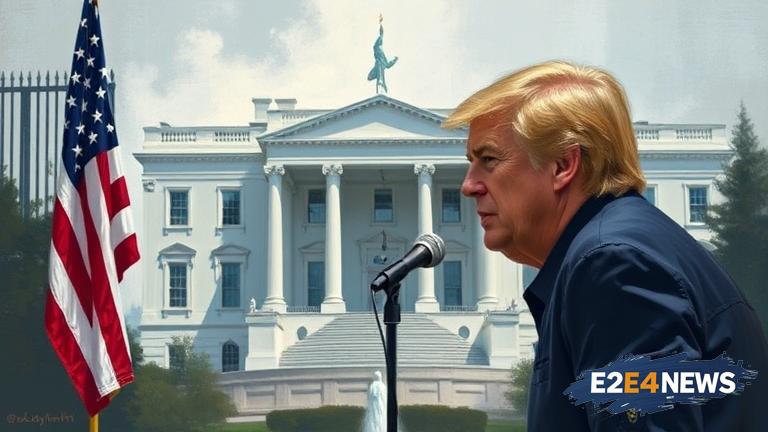The US Department of Justice has announced that it is walking back the White House’s goal to arrest 3000 immigrants per day, a target that was set earlier this year. This decision comes as a result of the DOJ’s assessment of its current resources and capabilities, which have been deemed insufficient to meet the daily arrest goal. The White House had initially set this target as part of its efforts to strengthen border security and enforce immigration laws. However, the DOJ has realized that achieving this goal would require significant investments in personnel, infrastructure, and technology. The department has also expressed concerns about the potential impact on the justice system, including the strain on courts and detention facilities. Despite the revised goal, the DOJ remains committed to enforcing immigration laws and securing the borders. The department will continue to work with other agencies, such as Immigration and Customs Enforcement (ICE) and Customs and Border Protection (CBP), to identify and apprehend individuals who are in the country illegally. The US government has been facing significant challenges in managing the flow of immigrants across its borders, with many individuals attempting to enter the country through unauthorized means. The revised goal is expected to have significant implications for the US immigration policy, with potential impacts on the number of deportations, detentions, and court proceedings. The decision has been met with mixed reactions from lawmakers and advocacy groups, with some expressing concerns about the potential consequences for immigrant communities. Others have welcomed the revised goal, citing the need for a more realistic and sustainable approach to immigration enforcement. The US has a long and complex history of immigration, with many individuals and families seeking to enter the country in search of better opportunities. The country’s immigration laws and policies have been the subject of intense debate and controversy, with different administrations taking varying approaches to enforcement and reform. The current administration has taken a tough stance on immigration, with a focus on strengthening border security and enforcing laws. However, the revised goal suggests that the administration is also recognizing the need for a more nuanced and realistic approach to immigration policy. The implications of this decision will be closely watched in the coming months, as the US continues to grapple with the challenges of immigration and border security. The US government has a responsibility to enforce its laws and protect its borders, while also ensuring that the rights and dignity of all individuals are respected. The revised goal is a step towards finding a balance between these competing priorities, and it will be important to monitor the impact of this decision on immigrant communities and the broader justice system. The US is a country of immigrants, and its history and culture have been shaped by the contributions of people from around the world. As the country continues to evolve and grow, it will be important to find ways to manage the flow of immigrants in a fair, humane, and sustainable manner. The revised goal is a recognition of the complexity and challenges of immigration policy, and it suggests that the US government is committed to finding solutions that work for everyone. The decision has significant implications for the US economy, as immigration has been a key driver of growth and innovation. The US will need to find ways to balance its economic needs with its commitment to enforcing immigration laws and protecting its borders. The revised goal is a step towards finding this balance, and it will be important to monitor the impact of this decision on the US economy and society as a whole. The US government has a responsibility to protect the rights and dignity of all individuals, regardless of their immigration status. The revised goal is a recognition of this responsibility, and it suggests that the US government is committed to finding solutions that are fair, humane, and sustainable. The decision has significant implications for the US justice system, as it will require significant investments in personnel, infrastructure, and technology. The US will need to find ways to manage the flow of immigrants in a way that respects the rights and dignity of all individuals, while also enforcing its laws and protecting its borders.





